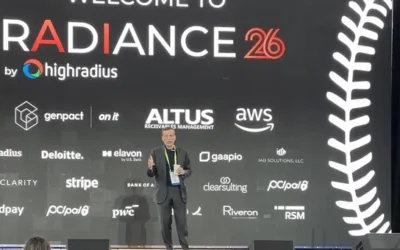First-time CFO Renuka Nayani credits her early experience as a consulting firm software developer with sparking her focus on financial inclusion.
Through the Accenture Development Partnerships program, she consulted with the World Bank in Sri Lanka, where she saw the financial needs of emerging markets firsthand. Already planning to broaden her impact beyond technology, she enrolled in an MBA program that would let her explore other options for supporting underserved markets. A finance career turned out to be a natural fit.
After Nayani’s post-MBA employment with Morgan Stanley as vice president of technology investment banking gave her deeper insight into financial inclusion, she knew she wanted to work exclusively for mission-driven companies.
Nayani left investment banking for a series of financial leadership positions at Oportun, which lends funds to thin-credit-file individuals, before joining Fundbox as vice president of finance in 2021. She became CFO of the embedded capital platform for small businesses two years later.

Renuka Nayani
CFO, Fundbox
First CFO position: 2023
Notable previous employers:
- Oportun
- Morgan Stanley
- Accenture
This conversation has been edited for clarity and brevity.
SANDRA BECKWITH: While your undergrad degree is in computer and electrical engineering, you got an MBA after working five years as a coder and software developer. Why did you get the MBA, then shift to a career in finance?
RENUKA NAYANI: When I worked for consulting firm Accenture right out of college, I was deployed to various clients as a technology consultant across different industries to help them automate their core processes. I eventually realized I was more excited by the project nature of the work than by software development, and I wanted to play a bigger role.
I thought business school would be a good way to figure out what my next career should be. A few quarters and extracurriculars in, finance felt like a natural fit with my engineering background. Engineering is a very structured way of solving problems, and that translates very well into finance.
Your career now focuses on social entrepreneurship and financial inclusion. How did that come about?
My last project at Accenture before grad school was with Accenture Development Partnerships, which provides pro bono consulting services to nonprofits and NGOs around the world. I worked with the World Bank in Sri Lanka, helping the government develop infrastructure to automate delivering core services to citizens. It opened my eyes to the work that was possible in emerging markets.
When I joined Morgan Stanley right after business school, I had several opportunities to become involved with financial inclusion initiatives. They included an internship with the microfinance group and membership in the firm’s employee-led sustainable finance steering committee.
I knew from these experiences that wherever I worked next, I wanted alignment with things I personally care about.
Was becoming CFO always your career goal after you got your MBA? If so, how did it influence how you approached your career? If not, when did you decide to shift to the CFO track?
It wasn’t. Instead, I chose opportunities where I felt I would have room to grow. I sought roles that were intellectually challenging in companies with meritocracies that would reward my efforts.
As I moved forward, I knew that I didn’t want a traditional CFO position where all I did was finance. I wanted a broader mandate that would let me influence a company’s strategic direction and expose me to other functions.
What has been your biggest challenge as a first-time CFO?
Communications, both internally and externally. I had to learn very quickly how to communicate complex financial information and inspire confidence both internally at an all-hands meeting with employees, as well as externally with board members and investors.
As a finance person and former engineer, I’m pretty much an introverted numbers person. So, adapting my style of communication for non-finance stakeholders was a challenge. It’s something I’m still working on.
Looking back on your entire career, what do you think was the most pivotal moment, or what “aha” moment has had a significant impact?
Several times along the way, I was lucky to be offered roles that were beyond my direct experience. While people were confident I would be able to figure it out, I sometimes hesitated to accept because I thought my lack of experience would cause me to fail.
Each time, I surprised myself as I filled those shoes. Through those experiences, I learned not to count myself out. If you work hard and ask for help, you’ll find your way.
What advice would you give to others in finance hoping to become CFOs?
Getting your first CFO role is probably the hardest, but once you’ve joined the club, other opportunities will open up. So, if you’re looking to become a CFO, don’t worry too much about whether a company with an opportunity is the best fit for you long-term.
If your current employer isn’t giving you a path to it, look for a smaller organization where you will have the opportunity to learn and get a lot of firsts under your belt before seeking that long-term home.





